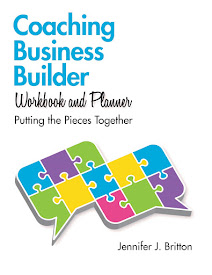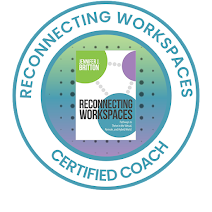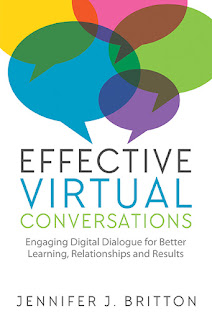Group Coaching, and
One of the more popular calls coaches listen to for the Group Coaching Essentials program is a call I did quite a few years ago on Group Development. You can find it over at the From One to Many Resource page. In it I review some of the key things you will want to consider/explore with groups at different stages.
Here's a very high level (and I mean high-level - i.e. just enough to get you going) overview of the FIRST TWO OF THE FIVE different stages, anexcerpt from Effective Virtual Conversations. As you read through, think about where your group is at and what may be needed as support:
Stage:
Forming - In this stage, we are helping the group
explore the What?
What’s
Important
·
Safety, expectations, clarity around what the
program is about
·
Getting people to connect and/or share their
WIIFM
Virtual Nuances
·
Group/team members can’t see each other
·
Geographically dispersed
·
Different realities and priorities
·
Notice how people are engaged in the virtual
realm—video versus text only interaction
·
Creating of a shared group portal or “go-to
place” for resources can be important
Considerations
·
WOW – Ways of Working
·
Focusing on connecting the group
·
Choosing platforms and considering synchronous
and asynchronous** connections
·
How do people want to connect?
·
How do you ensure privacy?
·
Confidentiality agreements
** Synchronous conversations happen
real-time. For example, I can be conversing real-time with someone in London
right now through text, chat or voice from my desk in Toronto. In Asynchronous
Learning there is a lag—so, for example, I might post a comment on a shared
thread tonight which can be read tomorrow by someone else, somewhere else.
Things to Make Sure You are Doing
·
Clarifying what is expected
·
Group norms
·
Connections amongst groups
·
Reviewing
·
Checking how to share personal information
with each other
·
Discussing confidentiality or how information
is shared
Activities You May Want to Use
·
Activities to create trust and connection such
as:
▪
Personal Logos
▪
Coins
▪
Vision/Values
▪
Assessments
▪
Goal Setting
Stage:
Storming - In this stage, we are helping the group
explore the What? So, who are we? What’s
this all about?
What’s
Important
·
Figuring out roles
·
How we want to operate
·
How this connects with me
Virtual
Nuances
·
Greater likelihood of disconnection
·
Greater opportunity for the anonymous factor, or, They can’t see me to kick in or people
to disengage
Considerations
·
There may be a lot of variances regarding
culture and language
·
Notice differences in how people approach, and
are comfortable with, conflict
Things to
Make Sure You are Doing
·
Normalizing conflict
·
Reinforcing the Ways of Working
Activities
You May Want to Use
·
Normalize functions, tasks, decisions
·
Appreciation
·
Best team
·
What’s holding the team back?
·
How to have difficult conversations or working
across differences
·
Prioritization
·
Style Assessments – MBTI and DiSC"
(Excerpt: Effective Virtual Conversations, Copyright Britton, 2017. All Rights Reserved)
This is often the second or third call of any group or team coaching process.
Next week I'll cover the last two or three stages - Norming, Performing and Adjourning. Where are your groups right now?
If you have any of my books, refer to these pages for more information:
Effective Virtual Conversations: pages 33 - 38From One to Many: pages 195-197
Effective Group Coaching: pages 59 - 62
Enjoy your week,
Jennifer
Jennifer Britton
Author of Effective Group Coaching (2009), and From One to Many: Best Practices for Team and Group Coaching (2013) and Effective Virtual Conversations (2017)
Phone : 416-996-TEAM (8326)
Author of Effective Group Coaching (2009), and From One to Many: Best Practices for Team and Group Coaching (2013) and Effective Virtual Conversations (2017)
Phone : 416-996-TEAM (8326)
Other Winter programs include the 3 month Mentor Coaching Group (for ACC/PCC), the Group Coaching Essentials program (8.75 CCEs). The Coaching Biz Growth Lab(TM) a 3 month business development group coaching program for coaches starts Thursday February 1st. Grab your spot today.













No comments:
Post a Comment